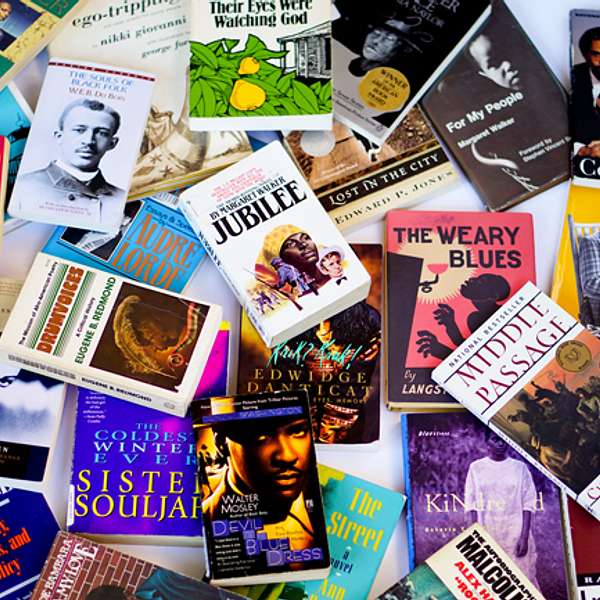
Remarkable Receptions
A podcast about popular and critical responses to African American novels, artistic productions, and more.
Remarkable Receptions
Black men novelists and intellectual traditions -- ep. by Howard Rambsy II
A short take on an interconnected thread of intellectualism in novels by black men.
Episode by Howard Rambsy
Episode read by Kassandra Timm.
If you check out novels by Richard Wright, Ralph Ellison, Charles Johnson, Paul Beatty, Colson Whitehead, and other black men writers, you'll encounter protagonists whose identities as thinkers are central to the narratives. Some of the characters are bookish. Some study philosophical ideas. Others explore a range of scholarly works.
Responses to and engagements with intellectual traditions are connective threads among generations of black men novelists.
You’re listening to Remarkable Receptions — a podcast about popular and critical responses to African
American novels.
In his autobiography Black Boy (published in 1945), Wright presented himself as a curious and searching thinker from a young age, and when he published his 1953 novel, The Outsider, the protagonist is known among his friends as a voracious reader with an inclination to consider big, complex ideas.
One of Wright’s most well-known contemporaries, Ralph Ellison was also interested in traversing a variety of intellectual concerns in his famous novel Invisible Man. After all, the unnamed narrator of the book begins by reflecting on his experiences as a student who rose above his African American peers and earned a scholarship to college. Throughout the novel, he raises questions about racial prejudice, ideological conflict, and the implications of the American dream for a young black man.
The philosophical considerations explored in fiction by Wright and Ellison serve as something of a precursor, if not blueprint, for subsequent generations of black men novelists. John A. Williams and later Ishmael Reed produced memorable novels featuring protagonists who grapple with racism, the experiences of black writers, cultural erasure, and more.
The main character of Reed’s 1976 novel Flight to Canada is a highly intelligent writer and humorous agitator, who happens to be a fugitive slave. The knowledgeable protagonist of Reed’s book serves as a key predecessor for the intellectually adept lead characters who appear in the fiction of Charles Johnson.
Most notably, his award-winning 1990 novel Middle Passage is based on the experiences of a well-read and witty, ex-slave. And beyond the intellectualism of his main characters, Johnson has long demonstrated an interest in composing philosophical novels – fictional works that address questions about human existence and the mind.
A number of prominent contemporary black men novelists, including Percival Everett, Paul Beatty, Colson Whitehead, Mat Johnson, Victor LaValle, and James McBride, extend, to varying degrees, the engagements with ideas and philosophy presented in the works of Wright, Ellison, Reed, and Johnson.
Taken together, the works of these black men novelists constitute a remarkable body of responses to the histories of African American intellectualism.
********************
This episode was written by Howard Rambsy and edited by Elizabeth Cali.
This podcast, Remarkable Receptions, is part of the Black Literature Network, a joint project from African American literary studies at Southern Illinois University Edwardsville and the History of Black Writing at the University of Kansas. The project was made possible by the generous support of the Mellon Foundation. For more information, visit blacklitnetwork.org.